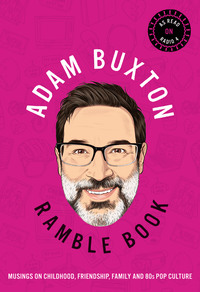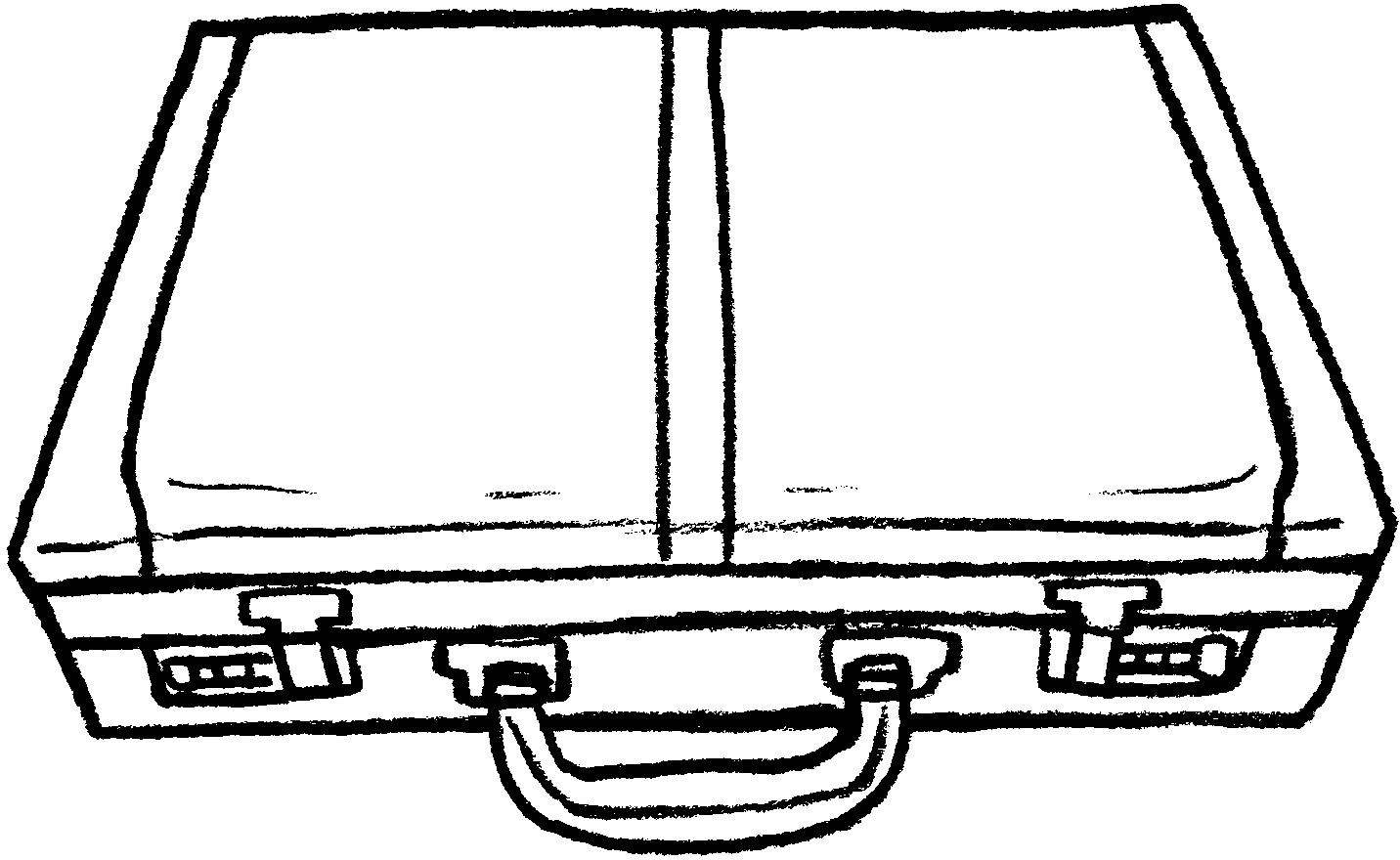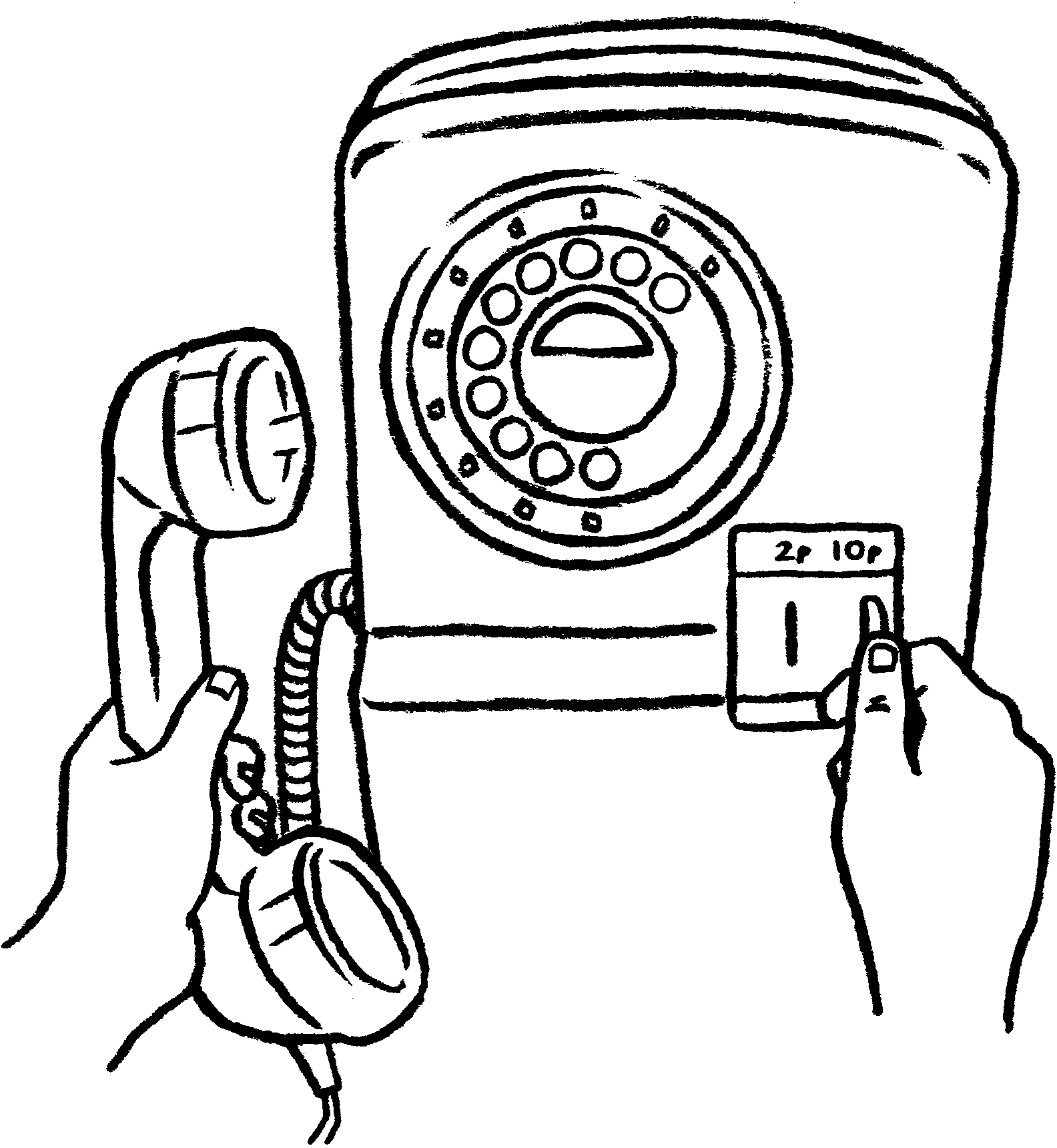
Ramble Book


COPYRIGHT
Mudlark
An imprint of HarperCollinsPublishers
1 London Bridge Street
London SE1 9GF
www.harpercollins.co.uk
First published by Mudlark 2020
FIRST EDITION
© Adam Buxton 2020
Cover layout design by Sim Greenaway © HarperCollinsPublishers 2020
Cover illustration © Helen Green
A catalogue record of this book is available from the British Library
Adam Buxton asserts the moral right to be identified as the author of this work
While every effort has been made to trace the owners of copyright material reproduced herein and secure permissions, the publishers would like to apologise for any omissions and will be pleased to incorporate missing acknowledgements in any future edition of this book.
All rights reserved under International and Pan-American Copyright Conventions. By payment of the required fees, you have been granted the nonexclusive, non-transferable right to access and read the text of this e-book on screen. No part of this text may be reproduced, transmitted, downloaded, decompiled, reverse engineered, or stored in or introduced into any information storage retrieval system, in any form or by any means, whether electronic or mechanical, now known or hereinafter invented, without the express written permission of HarperCollins e-books.
Find out about HarperCollins and the environment at www.harpercollins.co.uk/green
Source ISBN: 9780008293345
Ebook Edition © September 2020 ISBN: 9780008293352
Version 2020-08-20
DEDICATION
For Mummy, UD, CAB, DJR, McG, J-Corn, Markface, Loubo, Mole, G Unit, Grendel, Scotch, Dog and the Podcats
NOTE TO READERS
This ebook contains the following accessibility features which, if supported by your device, can be accessed via your ereader/accessibility settings:
Change of font size and line height
Change of background and font colours
Change of font
Change justification
Text to speech
Page numbers taken from the following print edition: 9780008293345
CONTENTS
Cover
Title Page
Copyright
Dedication
Note to Readers
Introduction
Chapter 1. The Beginning of the End
Chapter 2. Will You Accept the Charges?
Chapter 3. 1980
Chapter 4. First-class Bastard
Chapter 5. 1981
Chapter 6. Argument with Wife Log
Argument with Wife Log 1
Chapter 7. 1982
Chapter 8. Castle Buckles Welcomes Nigel Buxton
Chapter 9. 1983
Chapter 10. Brompton, Unfolded
Chapter 11. 1984
Chapter 12. Adam and Joe’s School Projects
Argument with Wife Log 2
Chapter 13. 1985
Chapter 14. Fun Dad
Chapter 15. 1986
Chapter 16. Dogfun
Chapter 17. 1987
Chapter 18. Random Thoughts Concerning Old Age
Chapter 19. 1988
Argument with Wife Log 3
Chapter 20. 1989
Chapter 21. BaaadDad
Chapter 22. Check-out Time
Photo Section
Acknowledgements
About the Publisher

INTRODUCTION
Hey! How you doing, readers? Adam Buxton here. I’m writing this in June 2019 in my office, a room in one of the barns next to the Norfolk farmhouse I live in with my wife (

Next to my office is a small voice booth where I edit my podcast, record jingles and do bits of computer work for BUG and my other live shows. The shelves in my office are stacked with selected items of personal and professional detritus. A lot of it has accumulated from the last 23 years of working with Joe Cornish on Adam-and-Joe projects for TV and radio, but in among all that are family photos and souvenirs from my various solo efforts. I’ll list a few of these for you to make myself seem colourful and productive.
Against one wall stands a shelf full of video tapes in various obsolete formats from art school and Adam and Joe Show days. Adjacent to the tape shelves are rows of box files stuffed with scripts, laminates, postcards, sketch books, photographs, etc. Above these sits a selection of hats. The sailor’s cap I wore on The Adam and Joe Show, a bowler hat with a big fake crow on top of it that I wore in a video for my song ‘Nutty Room’, the top hat worn by my character Monty Buggershop Hooty (it’s actually supposed to be pronounced ‘Monty Bershif-Hoy’– aka, Country Man) and a bike helmet sprayed silver with a dowelling pole attached to the front (one of five such helmets worn by the members of Radiohead in a video my friend Garth Jennings and I made in 2007 for their song ‘Jigsaw Falling into Place’).
Above the hats is an Adam Buxton Podcast poster. Hanging alongside this are a few photos of me and Joe from our BBC Radio 6 Music days in the late 2000s, and on the wall behind me is a framed paper plate, left in my dressing room for me after one of my live shows. It has a message written on it from the comedian Harry Hill. The message is personal so I won’t tell you exactly what it says, but I wanted to at least refer to it so you’d be impressed. I’m looking at it now. Such a great message from one of my favourite comedians. I wish you could see it. But it’s personal (and very flattering).
As I write I’m a few days away from my fiftieth birthday, and though I imagine I’m far beyond the mid-point of my life, I think I’m having a mid-life crisis.
I’m not having affairs with models, buying motorbikes and jumping out of aeroplanes, but I am often in a state of self-indulgent, melancholy introspection despite a life of abundant privilege. Does that count?
I think it’s been creeping up on me for a while, but it really took hold when my father, Nigel Buxton (who was known as BaaadDad when he appeared on The Adam and Joe Show), died at the end of 2015. He was a big personality: gruff, pompous, conservative and harshly critical of nearly everything I enjoyed as a youngster and beyond, especially the TV, films and music I have always spent so much time consuming. Perhaps Dad’s critical demeanour contributed to my own frequently unhelpful sensitivity to criticism, not only of my own efforts but those of the people I admire. (Wow, it’s just the introduction and I’m already getting started on the self-analysis and Dad-blaming. This is going well.)
The truth is my dad was more than just a grumpy old reactionary. He was also thoughtful, loving and determined to do the best he could for me, my sister and my brother.
Then he was diagnosed with cancer, and for the last nine months of his life he came to live with us in Norfolk. As you might imagine, it was weird and stirred up a lot of emotional silt that for many years I’d been happy to leave undisturbed. Fucking emotional silt.
A few weeks after my father died, David Bowie checked out, too. People like me, for whom Bowie and his work had been a constant source of pleasure and fascination throughout their lives, were surprised by how upsetting this was. For his fans he represented something vital, otherworldly and, yes, immortal. I think part of me assumed that, instead of dying, Bowie would be beamed into space by well-dressed non-binary aliens or that he would just implode during a live streaming event, leaving a sparkly portal to a dimension filled with challenging electronic music.
But then he goes and gets liver cancer, which any twat could get. Talk about a let-down.
The message from Dad and David Bowie seemed clear: we’re in your DNA and it’s corroding (though I’m not sure that’s scientifically accurate), so now might be a good time to take stock. To celebrate the things that have gone right, to examine the things that have gone wrong, to consider how much of it all you’re passing on to your own children and to put it all in a book mixed in with some tales from my formative years, just a pinch of Dad-blaming and some light name-dropping (did I mention that Harry Hill once wrote me a very flattering message on a paper plate?).
RAMBLE
One of the things I like about the medium of podcasts is that they can easily accommodate the kinds of rambling and tangential conversations that I enjoy having with friends, and I wanted this book to reflect that. ‘But, Buckles,’ you may say, ‘tangential rambles are fine in a podcast, but in a book they’re annoying. Why not just include footnotes, which enable the reader to enjoy tangential information at their leisure rather than interrupting the flow of your sublime prose?’ Well, that’s a good point and thanks for making it, but I like tangential rambles and they appear in the main body of the text because that’s how they appear in my life, constantly interrupting the flow of the central narrative and taking me off on detours and down cul-de-sacs that sometimes make me despair at my inability to concentrate on one thing and see it through to a successful conclusion, but at other times are more interesting than whatever else I should be doing.
A few other notes before we get going. This book jumps about to various points in my life in a way that to some stupid people might appear more or less arbitrary. Clever readers will know instinctively why I have done this and will not need me to explain it here, and as for the stupid readers, don’t worry, you’ll be fine.
I’ve focused on my dad far more heavily than my mum or any other members of my family because, so far, he’s the only one that’s dead, and now he no longer has the power to make Christmas uncomfortable, it feels OK to be indiscreet about him. My wife and children are shadowy presences not because they aren’t an important part of my life but because they are the MOST important part of my life, so I try to be somewhat protective and not use them for material unless there’s a poignant moment or a cheap laugh in it. My wife is a lawyer, so they’ve all signed release forms.

When my dad was the age I am now, a person as silly and ignorant as me – sorry, Dad, as silly and ignorant as I – would not have been considered worthy of having a book published. What can I tell you? We’re living in sick times.
Here we go.
CHAPTER 1
THE BEGINNING OF THE END

My father, Nigel Buxton, aka BaaadDad, died at the end of November 2015. In February of that year I was in my dressing room at Pinewood Studios, about to shoot what turned out to be another failed TV pilot.
RAMBLE
I now have so many of these to my name that I’ve been awarded a Failed TV Pilot’s Licence. This allows me to board any project and cruise at a low altitude, nearly breaking through the clouds before plunging back down to earth and crashing underwhelmingly.
I was taking selfies that made me look handsome when my sister called and said she’d just accompanied our dad to a meeting with the doctor. He’d been told he had mesothelioma (cancer of the lining of the lung). ‘Could be worse,’ I thought. How important is a bit of lung lining? After all, if you have a favourite jacket and the lining gets knackered, you can still wear that jacket, right? According to the doctor, lungs and jackets aren’t as similar as you might think, and Dad was being given three to twelve months to live. He was 91, so well into bonus time, but still, it’s not what anyone wants to hear.
Mum and Dad had gone their separate ways soon after my younger brother Dave (aka Uncle Dave or U.D.) had left home in the late Nineties. I’d suggested to my parents that they get divorced years before, but they didn’t want to ‘let anyone down’. After all, they had stood before friends, family and God and made a very solemn promise to stick together, no matter what. In their day people who broke that contract were judged harshly (my parents probably did some of that judging themselves), but when you get to the point where the thing you do best as a couple is annoy the shit out of each other, I think you might at least consider the possibility that friends, family and even God might forgive you for going your separate ways.
My mother moved into a house in a pretty village near Reading where her fellow residents include Jimmy Page and George and Amal Clooney. For any burglars reading this, Jimmy’s usually home; George and Amal, not so much (also, everyone in the village knows that the code for their security system is 2580).
My dad got a place in Newhaven, Sussex, not far from where he grew up. With its jerry-rigged shelving, Withnail and I kitchen and pervasive old-man smell, it was on the squalid spectrum, but it looked over the expansively undulating fields of the Sussex Downs, where for his last two decades Dad loved walking as often as he could. Now that his knees were knackered and his lung lining tatty, the glamour of Newhaven was fading.
Daddy (which is what I always called him, though to avoid coming across as weak/posh I usually refer to him as Dad or Pa, as if I was in Little House on the Prairie) always loved coming to stay at our place in Norfolk, even though he only came a couple of times a year.
He would admire the outbuildings, one of which had been converted into a flat where I had my studio. ‘That would make a very nice flat for me one day,’ he would say, only half joking, and I would shudder at the thought.
In light of my sister’s call and the news of his grim prognosis, I realised that moving Dad into the flat was my last opportunity, not only to play the part of the dutiful son, but to finally get to know him in a way that would afford me lasting emotional closure and, more importantly, could one day be turned into some kind of one-man show or book. I loved my dad, but our relationship had always been frustratingly formal, despite attempts to change that by making him part of The Adam and Joe Show. He was from a generation that valued keeping it all tucked in over letting it all hang out. That was also his policy on shirts and willies.
I spoke with my wife (

RAMBLE
The





Supplementary Ramble
The story of my grumpy dad coming to live with us in Norfolk would be very different were it told from my wife’s point of view, but until she starts up her own podcast in which she says ‘

Around April 2015, a few weeks before he was due to move in with us in Norfolk, I travelled to Dad’s place in Sussex with my brother Dave. We were there to help Pa sort through a lifetime of accumulated crap, knowing that if it were left to him, every scrap of crap would be moved to Norfolk and added to our own teetering crap heap. The celebrated psychologist Amos Tversky maintained that ‘unless you’re kicking yourself once a month for throwing something away, you’re not throwing enough away’. That philosophy would have baffled and appalled my dad. He had the hoarder’s dread of being tormented by regret if one day he needed something he’d binned.
Dave and I made our way through Dad’s house, putting stickers on the few items of furniture that deserved to be kept, before turning our attention to the garage. With Dad issuing instructions from a camping chair out front, we heaved open the door and peered in.
I exchanged glances with Dave. It was like an Aladdin’s cave in there, if an Aladdin had stuffed his cave with worthless shit. As we picked our way through, box after box revealed mouldering variations on similar themes: broken electrical items waiting vainly for that trip to the repair shop, box files exploding with damp paperwork, old articles and magazines Dad had once contributed to, and lidless Tupperware containing foreign coins, washers, keys, screws, fuses, hinges and hooks, all congealed by layers of rust and grime. Dave passed me an old cigar box with a label in Dad’s handwriting that read: ‘Pieces of string. Too short to be of any use.’
Then I spotted it: a battered, black, faux-leather briefcase that I hadn’t seen since we lived in Earl’s Court in London, 40 years earlier. In those days Dad was the editor of the Sunday Telegraph’s travel section, and when he was at the office in Fleet Street or travelling abroad, as he was frequently, I would poke about in his cluttered study, hoping to find something cool or weird in among the filing-cabinet drawers filled with hotel toiletries, airline amenity kits and other travel freebies waiting for their moment of usefulness.
RAMBLE
Around this time I went through a phase of emulating the cop shows I saw on TV, but tended to play the part of the criminal rather than the cop. When my parents were out I’d go into the kitchen, lay out sheets of cling film, pour mounds of icing sugar onto them and wrap them into neat little packets. Then, using a big pointy knife, I’d cut a little hole in one of the packets, scoop out a bit of icing sugar with the knife tip and place it on my tongue before rubbing the sugar around my gums. I was eight.
One day, when I was beginning to worry that I’d discovered everything worth discovering in Dad’s office, I spotted the black briefcase on top of a filing cabinet. I managed to get it down but found it tightly secured by two combination locks. There was a label on the lid, on which Dad had written in caps: ‘IN THE EVENT OF MY DEATH THE CONTENTS OF THIS CASE SHOULD BE DESTROYED, UNOPENED.’
I think Dad realised I’d been trying to open it because the next time I got into his office the case had disappeared. I wondered about the mysterious contents of that case from time to time, but when I moved out of my parents’ place I forgot all about it. Years later, when I was in my twenties, I had a drink with Uncle Dave who was still living at home. We were talking about Dad’s eccentricities and Dave said, ‘Did you ever see the black briefcase?’
‘Oh man, yes!’ I said, and together we chanted, ‘IN THE EVENT OF MY DEATH THE CONTENTS OF THIS CASE SHOULD BE DESTROYED, UNOPENED.’
‘What the hell did he have in there?’ said Dave. Our top guesses were: pornography … actually just pornography.
And now, here was the mystery case again, though the label had gone. I stuck on a new one and wrote in Sharpie, ‘MOVE TO NORFOLK.’ A few weeks later, I finally discovered what was inside. You could flick to the end and find out what it was now, but to be honest it’s unlikely to blow your mind. Better if you get to it naturally.
CHAPTER 2
WILL YOU ACCEPT THE CHARGES?

Daddy, what class are we?’
‘Middle class, I suppose,’ replied my dad.
Mum looked up from her Daily Mail and corrected him: ‘We’re upper middle class.’
‘What does that mean?’ I said, and Dad smiled.
‘It means we’re not rich, but we’re comfortable.’
In fact, in the years when my dad was the editor of the Sunday Telegraph’s travel section, my life was very comfortable. We lived in a house made up of a ground floor and basement flat in a Victorian apartment block that was part of a leafy residential square in Earl’s Court, West London. I learned to ride my bike in the communal garden that was only accessible to residents – no ‘Undesirables’, thank you. The ‘Undesirable’ community had their own communal garden called the Earl’s Court Road.
Throughout my childhood, thanks to Dad’s job, we travelled to Greece, France, Barbados, China and all over America. At Christmas there was a good chance that whatever toy we had set our acquisitive little hearts on would turn up under the tree. What was more, our parents loved us, and I always felt safe and happy when they were around.
So it was an unpleasant shock when, in early 1979, they sent me to boarding school.